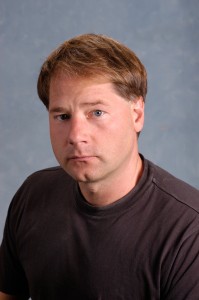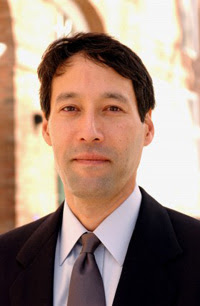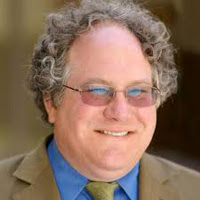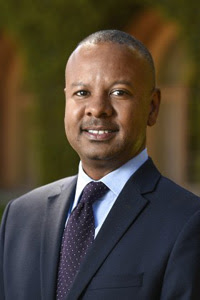The stalemate with nuclear North Korea
Rhetoric over a nuclear threat from North Korea intensified this week as the isolated country threatened to retaliate against the United States over new sanctions issued by the United Nations. President Trump responded that the United States would hit back with “fire and fury” – and the Dow Jones and S&P dipped. USC experts on foreign policy and economics say the exchange significantly diverges from the typical U.S. diplomatic response over a nuclear threat, and certainly the fearsome prospect of a military or nuclear confrontation makes everyone nervous. Words matter, they agreed, but this match is at a draw.
Contact: Emily Gersema, (213) 361-6730 or gersema@usc.edu
 Advancement in nuclear weapons
Advancement in nuclear weapons
North Korea’s continued advancement in nuclear weapons development is very concerning, and testing indicates that the country is very focused on eventually developing a hydrogen bomb, said Bart Kosko, a professor of electrical engineering at the USC Viterbi School of Engineering and a professor of law for the USC Gould School of Law.
“The crucial thing I would be concerned with is that last year, 2016, the North Koreans apparently ‘boosted’ a plutonium-based A-bomb. Boosting injects heavy-hydrogen gas into the hollow plutonium core just as the conventional explosives crush or implode the core to induce nuclear fission. Boosting increases the yield of the A-bomb. That makes it easier to fit a smaller nuclear warhead on a missile. It is also a key step in using an A-bomb to set off an H-bomb and ultimately produce a thermonuclear warhead.
“The North Koreans quite likely don’t yet have an H-bomb, but that is clearly where they are headed. Detonating even a crude H-bomb in outer space can produce an EMP [electromagnetic pulse], akin to an artificial aurora borealis, that can devastate sensitive electronics for hundreds or even thousands of square miles below.”
Even though some of North Korea’s missile tests have failed, Kosko noted that these failures signal that the country is focused on testing and learning from the failures to further refine the weaponry.
“The North Koreans also advanced this spring from using liquid-fuel to solid-fuel rockets for at least their medium-range missiles. Solid-fuel rockets are easier to prepare for launch. Worse, the North Koreans were able to launch them from mobile launchers that they can easily move and hide.”
Bart Kosko is an expert on machine intelligence, smart weapons and nanotechnology.
Contact: kosko@usc.edu
A lot of bluster over an unlikely confrontation
“This is all rhetoric. Deterrence still works because we believe North Korea will fight back if we attack them first; they believe we will fight back if they attack us first. So there is no imminent threat, and all the rhetoric from both sides is simply re-stating the obvious.”
Also, in a recent op-ed in The New York Times:
“Nuclear weapons are almost useless for coercion, but they are great for deterrence. They are designed to ensure the survival of the country and the regime. The more pressure the United States puts on the North Koreans, the more likely they are to continue perfecting their missiles and nuclear weapons. In short, deterrence works, and neither North Korea nor the rest of the world is in danger of forgetting that.”
David C. Kang can discuss the history of foreign policy with North Korea, its Asian neighbors and the United States. A co-author of the book, “Nuclear North Korea: A Debate on Engagement Strategies,” Kang is a professor of international relations and business and director of the Korean Studies Institute at the USC Dornsife College.
Contact: (213) 290-5264 or kangdc@usc.edu
Markets shaken by threats of action
“The issue with North Korea is an ongoing saga since the split of the Korean peninsula. However, throughout this time, we hadn’t seen bombastic tone and escalation of rhetoric in scale and frequency that we see lately. The North Korean regime has their back against the wall with economic, political and trade embargos and continued isolation from the world. It has a few allies, especially China, but it may come down to ‘What is there to lose?’ from Pyongyang’s perspective.
“The situation has now become so unpredictable that any rational, logical conclusion of the outcome of this situation is impossible; thus, causing the jitters in the market and instability for many of the neighboring countries. Unless there is an inside revolt within North Korea, the outlook for rationale diplomacy is less likely, especially if we continue to talk the flowery, retaliatory language without providing a face-saving escape window for the regime. The possible resolution might be placing the significant burden on China and others to step up and lead on diplomacy to resolve this before it gets out of control.”
Nick Vyas can discuss the effect of the intensified U.S.-North Korea exchange on the markets and the economy. Vyas is the executive director for the USC Marshall School’s Center for Global Supply Chain Management and an assistant clinical professor of data science and operations.
Contact: (213) 821.4079 or nikhilvy@marshall.usc.edu
China prefers stability over regime change
“China has considerable influence over North Korea but even that influence has limits. North Korea zealously guards its sovereignty. Kim Jong Un has executed officials thought to be too close to the Chinese. But more than that, China is completely unwilling to do anything that might yield a unified Korea allied with the United States. China’s leaders recall that China’s great trauma of the 20th century, the invasion and occupation of large parts of China by Japan, started with the Japanese annexation of Korea. China’s leaders don’t like North Korea’s monarchy, but they fear alternatives would be worse for China.”
“China’s leaders likely wish North Korea hadn’t come this far. Decades ago, China assisted Pakistan with its nuclear weapons program as a way of aiding a friendly state and threatening India. China’s leaders probably regret that. Pakistan is suspected of aiding North Korea’s nuclear program. The destabilization of the region is not in China’s interest. It’s driven both South Korea and Japan closer to the United States. South Koreans had been moving closer to China, but now see China as protecting and enabling North Korea’s government.”
“If turning back the clock is the goal, then the only option right now is probably military action. The cost of using that option, though, is simply much too high. If we were to make such a decision where South Koreans would bear the heaviest burden, then that is morally unacceptable. It’s one thing to say that we would sacrifice many American lives to end this threat. It’s another thing to say that we would unilaterally sacrifice countless South Korean lives to make America safer. That is no way to treat an ally that has lived with the threat from the north and been central to the American defense perimeter for more than half a century.”
Clayton Dube can discuss China’s involvement in U.S.-North Korea matters and its fragile relationships with its Asian neighbors. Dube is the executive director of the U.S.-China Institute at the USC Annenberg School of Communication and Journalism.
Contact: (213) 821-4382 or cdube@usc.edu
Tillerson and Trump should be on the same page
“The United States is going to have to come to grips with a nuclear North Korea. It is all but impossible to put the nuclear genie back in the bottle.”
“President Trump is taking the bait from North Korea’s fiery rhetoric and he doesn’t need to. His comments probably aren’t going to precipitate a serious escalation. But they surely don’t help a volatile situation. Trump’s shoot-from-the-hip tweets are aimed at his domestic base but could have serious consequences if the adversary doesn’t recognize that.”
“The North Korea nuclear situation is extremely difficult under any circumstance. With the State Department absent senior leadership under and direction from the Secretary himself, it doesn’t bode well. In a crisis like this, the secretary of state and the president should obviously be on the same page. But while Secretary Tillerson has kept the door open for direct negotiations with Pyongyang, President Trump’s ‘fire and fury’ rhetoric undermine him and needlessly inflame the situation.”
Jeffrey R. Fields can discuss nuclear proliferation and foreign policy with North Korea. An associate professor for the USC Dornsife College’s School of International Relations, Fields has been a political-military analyst and senior adviser at the U.S. Department of Defense where he focused on the proliferation of nuclear, biological, and chemical weapons. He also worked as a foreign affairs officer at the State Department where he supported the Special Representative of the President for Nuclear Nonproliferation. Fields is director of the Dornsife Washington DC Program.
Contact: (213) 740-1335 or jeffrey.fields@usc.edu
That’s not how foreign policy usually works
“This is not how foreign policy is typically conducted. Typically, diplomats talk to diplomats and generals talk to their military counterparts to the greatest extent possible. Presidents should talk to their generals and their diplomats, but not conduct foreign policy through the media because to do so may only increase anxieties both overseas and in their homeland.
“This latest exchange is like playing Russian roulette with a crazy person. Kim Jong Un may have made more advances in his weapons capabilities than we know. We know that he had nuclear weapons and now that he has intercontinental ballistic missiles, but we were unsure that he had miniaturized the weapons so that the missiles could deliver it accurately to distant targets. Experts are now speculating that he may have achieved this capability. Some believe he can now hit the West Coast of the United States and maybe even Chicago.
“One can only hope that the wise generals who are surrounding Trump are providing input. Given the number of conventional arms that the Democratic People’s Republic of Korea has aimed at Seoul the cost of a military conflict could be devastating even if Kim Jong Un was unable to launch his nuclear weapons.”
Tom Hollihan is currently in Washington, D.C., and can talk about U.S. foreign policy and diplomacy with North Korea. He is a professor of communication at the USC Annenberg School and is a faculty fellow in the USC Center for Public Diplomacy and the USC Center for Communication Leadership. He has coached U.S. Department of Defense and Navy leaders on strategic communication and also teaches in the USC Annenberg World Bank Summer Institute.
Contact: (213) 392-2234 or hollihan@usc.edu
Photo Credit: iStock
# # #








